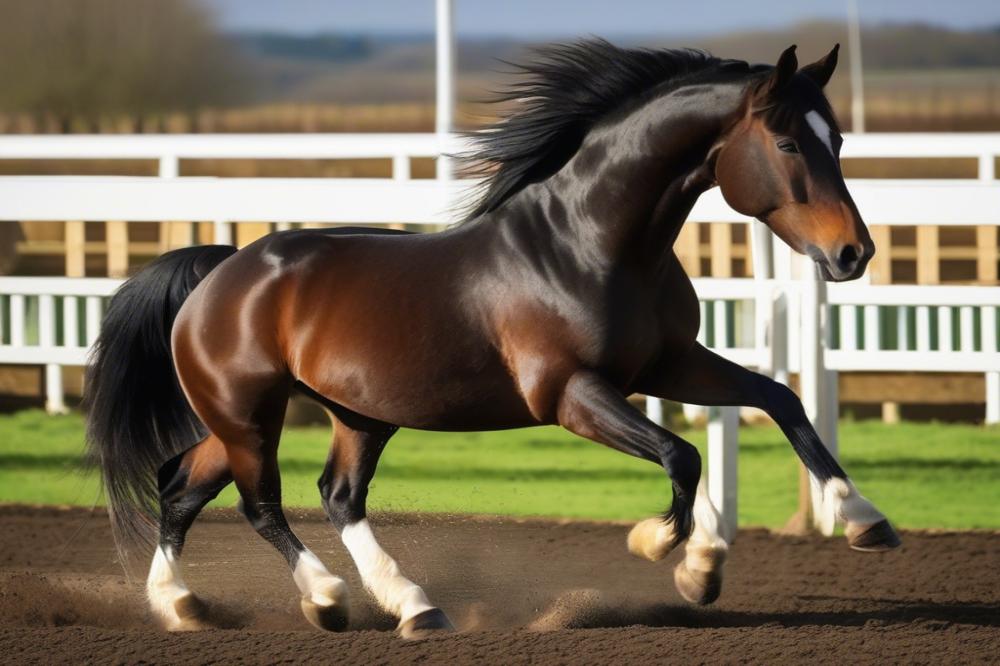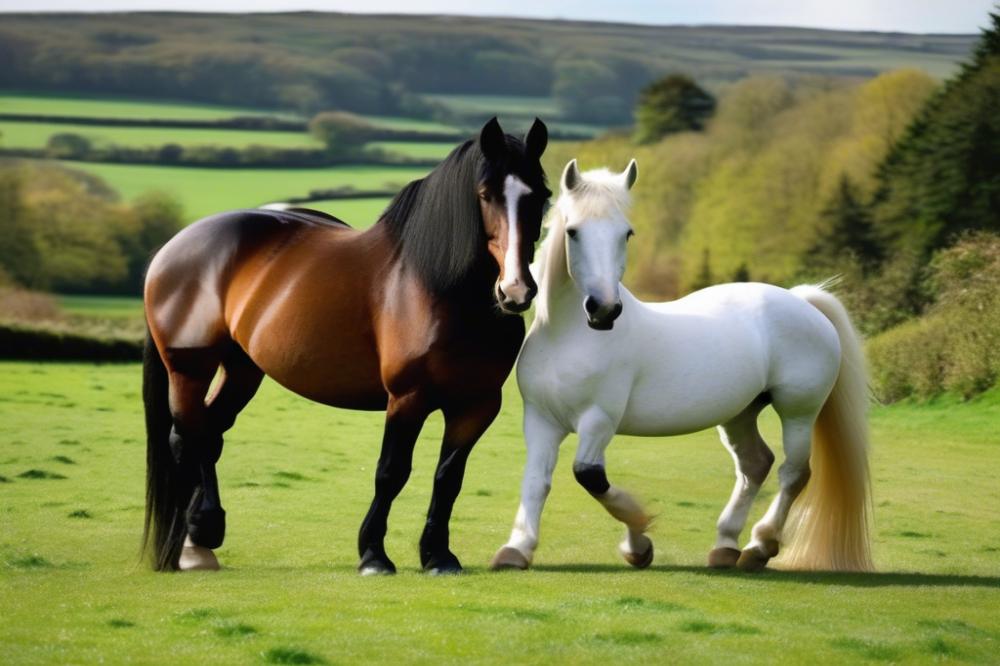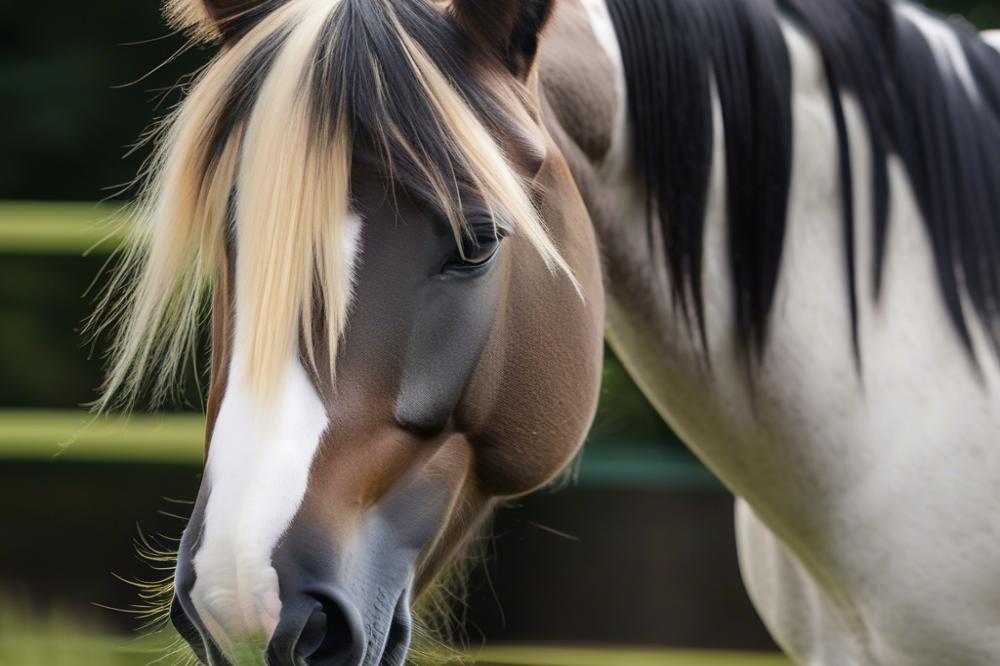Getting Acquainted with the Irish Cob Horse
The Irish Cob horse, often admired for its striking appearance and gentle demeanor, is a beloved breed among equestrians. With their sturdy build, long flowing manes, and feathered legs, these horses steal the spotlight in both fields and arenas. Known for their versatility, they excel in various activities, from leisure riding to competitive events. Imagine them trotting along a scenic route—it’s a sight that tugs at the heartstrings!
Why Prices Matter
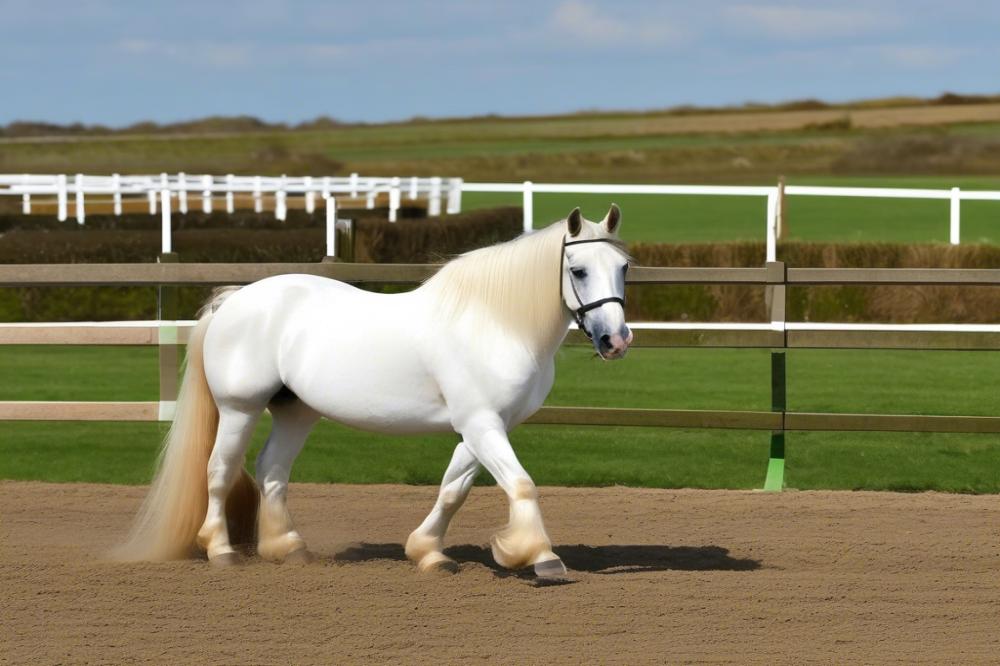
When thinking of a horse purchase, many factors come into play, particularly the cost. Understanding Irish Cob horse prices is not just about knowing how much to set aside; it’s a fundamental part of horse management. Equestrian expenses can quickly add up, and knowing what affects pricing can help potential owners make informed choices. It’s not unlike planning a family vacation where you can either splurge on fancy hotels or find hidden gems that don’t break the bank.
Factors That Influence Cost
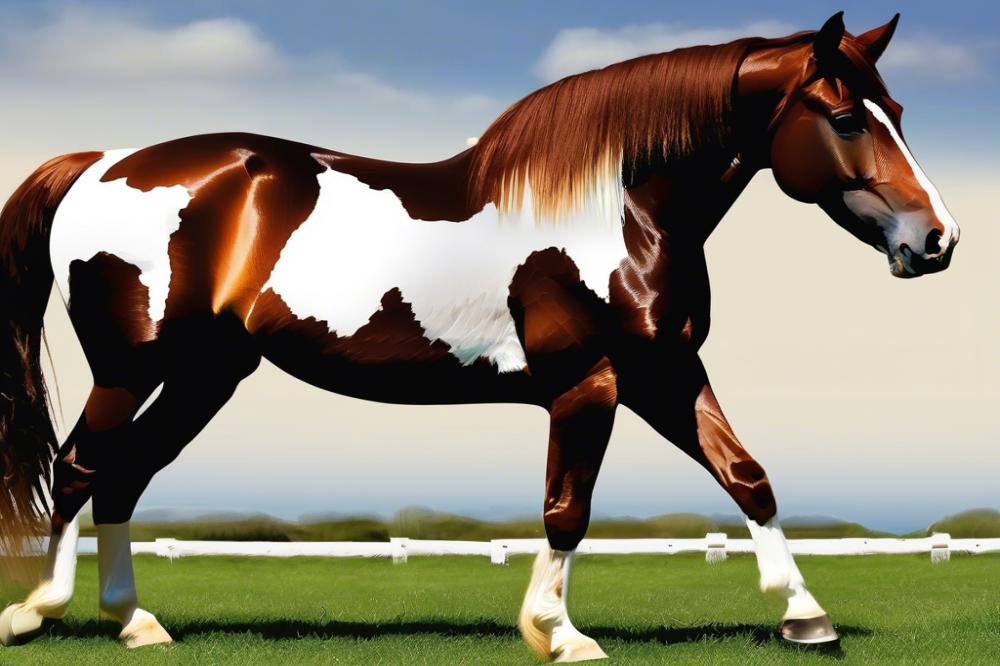
Pricing for these charming horses varies widely based on various elements. The age, health, training, and pedigree of the horse all impact its price tag. For instance, a well-trained Irish Cob with a solid competition record can command a higher price than a younger horse still in training. It’s much like comparing a seasoned player to a rookie—experience often comes at a premium! Additionally, geographical location can sway prices, much like how real estate varies from city to country.
Understanding the Bigger Picture
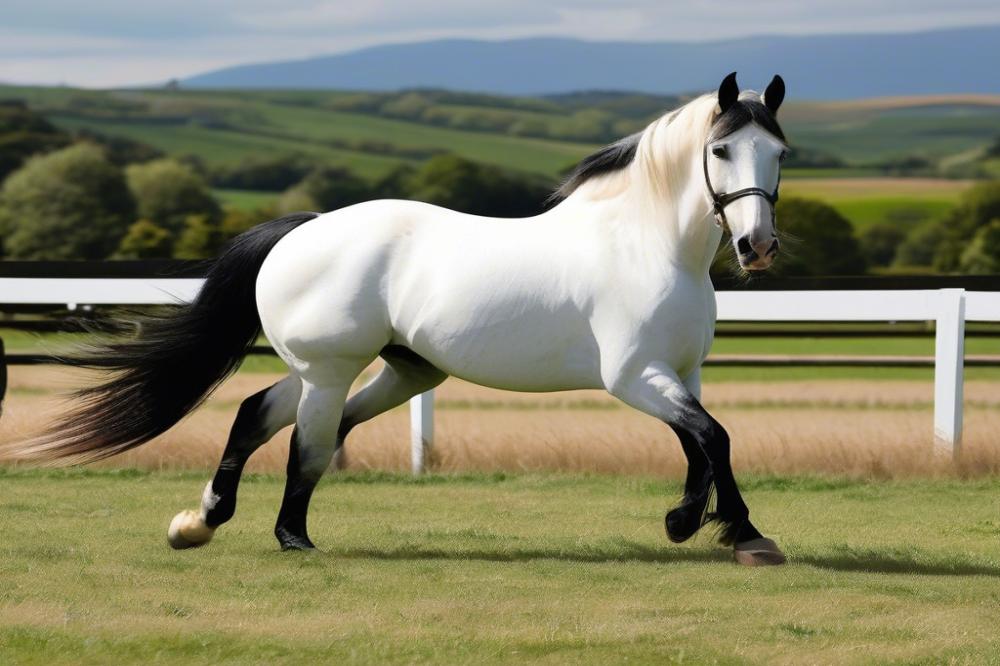
So why should you care about all this? Engaging in a cost analysis of an Irish Cob horse can prepare you for what lies ahead. From horse care to ongoing expenses like feed and veterinary visits, owning a horse requires commitment. This isn’t just a one-time purchase; it’s more like a long-term relationship. Think of it as debating between a motorcycle vs. horse—both are exciting, but they come with their own sets of responsibilities and costs.
By diving into this topic, we aim to equip you with the knowledge to navigate the world of Irish Cobs effortlessly. Whether you’re a first-time buyer or a seasoned horse lover, understanding these factors will make your journey smoother. After all, these incredible creatures are not only versatile but also bring immense joy and companionship into our lives.
Final Thoughts
Whether you’re considering these magnificent animals for their appearance or their gentle nature, jumping headfirst into the complexities of ownership gives you a head start. That’s the beauty of exploring the world of horse care, especially with lovable breeds of small horses. Take your time, do some research, and enjoy the ride!
Understanding the Irish Cob
Description of the Breed
The Irish Cob, also known as the Gypsy Vanner or Tinker Horse, boasts a sturdy build. Often, you’ll find them adorned with long, flowing manes and thick feathering on their legs. Size-wise, they typically stand between 13.2 to 15.2 hands high. This breed’s coat can vary widely, appearing in colors ranging from piebald to skewbald. Their appearance often evokes a sense of beauty and charm, making them quite popular among horse enthusiasts.
Historical Significance and Origin
Irish Cobs have a fascinating history that ties back to the Romani people in the British Isles. These folks bred the horses to pull their caravans and assist with work around the farm. Over the years, the breed has become a symbol of Irish culture and craftsmanship. Their resilience is impressive, too, having thrived through generations despite changing times. Such a rich history adds to their allure and significance in today’s equestrian world.
Characteristics and Temperament
Temperament-wise, these horses are known for their gentle nature. They have a calm demeanor that makes them suitable for riders of all experience levels. Many owners highlight their intelligence. This breed learns quickly, which is wonderful for training sessions. Their playful spirit brings joy to family farms, creating memorable moments during rides. Some might say they have a knack for forming bonds with their people, almost like having a furry companion.
Uses and Popularity
In terms of usage, the Irish Cob is incredibly versatile. Many individuals utilize them for leisure riding, competitions, or even as therapeutic animals. Popularity has surged in recent years, leading to a rise in equestrian expenses linked to purchasing them. Horse care is essential, and prospective owners should prepare for horse management, including regular grooming and health checks. If you’re considering a horse purchase, remember that a detailed cost analysis is vital for responsible ownership. With the right care, these horses can thrive and bring joy to your life for many years.
Factors Influencing Irish Cob Horse Prices
Many things affect the cost of an Irish Cob. Age is one key factor. A younger horse might seem appealing, but training levels can be just as important. A well-trained horse usually costs more because it’s ready to ride and doesn’t need much groundwork. However, a younger, untrained horse could require a lot of work and patience before it becomes useful.
Pedigree also plays a big role. A horse with a strong lineage can command a higher price. Buyers often look for family history, especially if it shows success in competitions. Breeding matters significantly in the world of horse buying. Sometimes, good bloodlines can even push costs up significantly. It’s like having a winning lottery ticket in the horse world!
Conformation matters too. Horses that look well-balanced and healthy often sell for more. Issues like bad legs or poor body shape can lower a horse’s price. Buyers want to avoid extra expenses on vet bills. If a horse has a clean bill of health, it’s more desirable. Keeping an eye on overall health is essential for anyone looking to purchase. It’s not just about the upfront price; ongoing care costs matter.
Market demand varies, and that affects prices. If more people want Irish Cobs, naturally, prices go up. Sometimes, a particular area may see a surge in interest. Breeders might increase prices if there are fewer horses available. Regional differences can create quite a stir in the world of equestrian expenses. Remember, it’s good to keep tabs on the local horse market when considering a purchase.
Lastly, trends might swing prices unexpectedly. Economic conditions can play a part too. During good times, people tend to spend more on horse management and expenses. In tougher times, the opposite happens. Keeping these factors in mind will help anyone navigate the sometimes choppy waters of horse buying.
Average Price Range for Irish Cobs
When it comes to Irish Cob horse prices, a wide range greets potential buyers. Generally speaking, you might find them priced anywhere from a few thousand euros to significantly more, depending on several factors. This price range can create a bit of sticker shock, especially for newcomers to horse ownership.
Overview of Current Price Ranges
Irish Cobs can start around €3,000 for younger or less trained horses. On the higher end, skilled show-quality horses can reach €15,000 or more. Those with impressive bloodlines often carry a hefty price tag. So, anyone thinking of a purchase should check their finances carefully. Equestrian expenses can add up quickly!
Comparisons Based on Age and Experience
Age plays a huge role in the price. Young Irish Cobs, often full of energy, might tempt buyers with lower asking prices. However, more experienced horses can come with a premium because they bring training to the table. New owners might choose a horse with a calm demeanor, saving money in the long run as less training is required.
Regional Price Variations Within Ireland and Internationally
Location can change everything. Prices tend to be higher in urban areas compared to rural settings. The demand in cities often drives up costs. Looking beyond Ireland, international prices can fluctuate even more. Importing an Irish Cob to another country might include additional taxes, and understanding the regulations is a must for anyone considering such a move.
Special Considerations for Show-Quality Horses
When seeking a show-quality horse, be prepared for a significant investment. Impressively trained horses that win accolades cost more due to their proven track record. Horse management is crucial here; the more you know about what makes a show horse good, the better your choices will be. Prospective buyers should also factor in the ongoing costs related to horse care.
A little research goes a long way before diving in. Conducting a thorough cost analysis helps in finding the right fit. Nobody wants to face unexpected equestrian expenses after their purchase. Just remember, the journey into horse ownership is not just about the price tag. It’s about the joy, companionship, and experiences that come with these magnificent creatures!
Where to Buy Irish Cobs
Popular Sources and Breeding Farms
Finding an Irish Cob can begin at breeding farms. Many breeders specialize in these horses and can provide a wealth of knowledge. They often have a range of ages, colors, and sizes to choose from. Visit the farms if you can, as seeing the horses in person gives you a feel for their temperaments and health. Ask about the parents too—good lineage often results in well-behaved and healthy foals. Don’t overlook smaller, less-known breeders; sometimes they have gems hidden away.
Auctions and Sales Events
Attending horse auctions can be quite the adventure! These events usually feature many different breeds, including Irish Cobs. While excitement fills the air, it’s critical to set a budget before attending. Getting caught up in bidding wars can lead to unexpected equestrian expenses. Prices can vary widely, so doing some homework ahead of time will help you make informed decisions. Engage with other attendees too; chatting can reveal insights about the horses on offer.
Online Marketplaces and Classifieds
The internet is a useful tool for horse shopping. Websites dedicated to equestrian sales often list Irish Cobs in various regions. Pay attention to the photos and descriptions; they reveal significant details. However, always be wary of scams. Trust your instincts—if something feels off, it probably is. Also, video calls can help you get a better look at the horse from the comfort of your couch. Just remember to ask lots of questions about horse care and management.
Recommendations for Assessing Sellers
When examining potential sellers, credibility is key. Look for reviews or ask for references. A seller with glowing recommendations often has experience and cares about their horses. If you’re buying from a breeder, inquire about their facilities. Is everything clean? Are the horses content? These small signs can speak volumes. Always request a pre-purchase exam; having a qualified vet check the horse can save you from unexpected costs down the road. Don’t forget to trust your gut—the right horse will feel just right for you.
Cost of Ownership Beyond Purchase Price
Buying an Irish Cob is just the first step. Owning one brings various ongoing equestrian expenses that you should consider. For starters, feed costs can add up quickly. These horses need quality hay and grains to stay healthy and strong. You are looking at spending anywhere from $100 to $300 a month on feed, depending on the horse’s size and dietary needs.
Veterinary care is another important aspect of horse management. Regular check-ups, vaccinations, and unexpected emergencies can take a toll on your wallet. Vets don’t come cheap; annual costs could easily exceed $1,000. Don’t forget about routine care like hoof trimming, which adds another $300 or so yearly. When it comes to horse care, think of it like a health insurance plan. You never know when a trip to the vet is going to be needed.
Insurance Considerations
Insurance is often an overlooked part of horse ownership. Just like car insurance, it protects you from unexpected costs. This can range from theft to illness. Monthly premiums typically fall between $25 and $100, depending on coverage. Too little coverage can leave you high and dry if something goes wrong.
Training and Boarding Costs
Training your Irish Cob is key, especially if you’re looking to show off your new friend. Depending on where you live, professional training can set you back a couple of hundred dollars a month. If you board your horse, you need to factor in those costs as well. Prices for boarding vary widely, but expect to pay between $300 and $1,000 monthly. Does it feel like a luxury vacation? Sometimes it does, with all the facilities and care involved!
Long-Term Investment Aspects
Owning a horse is not just a hobby; it’s a long-term investment in time and money. You’ll want to think long and hard about this commitment. After the initial horse purchase, many expenses roll in, and they don’t stop. Picture yourself five years down the road. Will your love for riding still be there, and will you be able to manage the cost analysis? What might feel like a dream today can turn into a hefty responsibility tomorrow.
In the end, owning an Irish Cob horse can vary greatly from person to person. From feed and vet bills to training expenses, the cost of ownership can be eye-opening. Make sure you’re prepared for the rollercoaster of expenses that come with each gallop and trot. It’s worth it for the joy and companionship that comes from these magnificent horses!
Tips for Buyers
When considering the purchase of an Irish Cob, it’s essential to assess the value before making any commitments. Understanding how much you should pay involves doing some cost analysis. Think about the horse’s age, training level, and health before jumping in. A young horse might be cheaper initially, but be prepared for ongoing equestrian expenses related to training. Compare prices online and at local sellers to gain perspective.
Questions to Ask Sellers
Questions can save you a lot of heartache down the line. First, ask about the horse’s history. “What’s this horse’s background?” can provide a mountain of useful information. Knowing its training and past health issues can be a big deal. Another good question is, “Why are you selling it?” Motivation behind the sale can reveal a lot. Don’t hesitate to ask about any quirks or peculiar habits, either. Be upfront about your skill level and needs, as this helps sellers recommend the right horse for you.
Importance of Inspection and Trial Rides
Never buy a horse without a thorough inspection. Think of this like buying a used car; you wouldn’t want to discover engine problems after driving off. Make sure you have a vet check the horse. They can spot potential issues that might not be obvious to an untrained eye. Following that, try to schedule a trial ride. This is your chance to see how you and the horse bond. If you can ride it comfortably and it responds well, you may have found your perfect match. Remember, a trial ride can save you from unexpected surprises later.
Resources for Further Research
Research can make all the difference when it comes to horse management. Books and online forums provide invaluable insights into care and training of Irish Cobs. Check reputable websites about horse care and management to deepen your knowledge. Local equestrian clubs often host events where you can connect with experienced owners. These interactions might lead to valuable tips and possibly good deals. Always keep an eye out for local classifieds and online listings where prices can vary significantly.
Wrapping It Up
In summary, exploring Irish Cob horse prices reveals a landscape as rich and varied as the Irish countryside itself. Factors like age, training, breeding, and even location can all play a significant role in what you might expect to pay. While some may find a stellar deal, others might need to stretch their budget a bit to find that perfect match. Just like finding that elusive pot of gold at the end of the rainbow, sometimes it takes a little hunting!
When it comes to making informed purchasing decisions, be sure to gather as much information as possible. Visit local breeders, check out listings like “draft horses for sale near me,” and don’t hesitate to ask questions. Have a chat with current owners and trainers; they can provide invaluable insights that you won’t find online. Remember that investing time in research can save you headaches later on.
Consideration is key while navigating the journey of buying an Irish Cob. Each horse has its own personality and background, much like people. It’s important to factor in your experience level, the intended use for your new companion, and any necessary horse handling equipment. After all, you’d want to be well-prepared for the adventures that lay ahead!
In the end, the decision to welcome an Irish Cob horse into your life should come from a blend of passion, practicality, and a touch of whimsy. With all these elements in mind, you’ll be much better equipped to embark on this wonderful journey. Best of luck, and may you find a four-legged friend who brings joy and laughter to your life!

